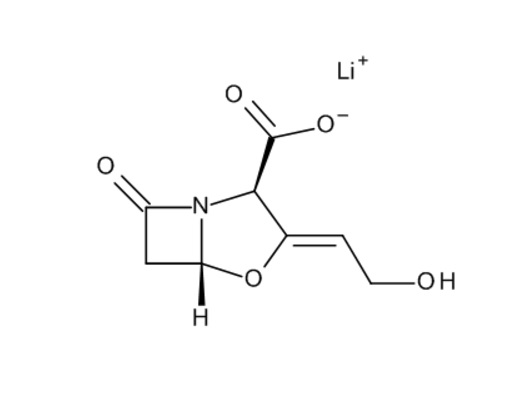2,3-Epoxypropyltrimethylammonium chloride
Synonym(s):(2,3-Epoxypropyl)trimethylammonium chloride
- CAS NO.:3033-77-0
- Empirical Formula: C6H14ClNO
- Molecular Weight: 151.63
- MDL number: MFCD00011940
- EINECS: 221-221-0
- SAFETY DATA SHEET (SDS)
- Update Date: 2024-11-19 16:49:49

What is 2,3-Epoxypropyltrimethylammonium chloride?
Description
Used in the production of cationic starch for the paper industry, 2,3-Epoxypropyl trimethyl ammonium chloride (EPTMAC) caused contact dermatitis in the workers.
Chemical properties
solid
The Uses of 2,3-Epoxypropyltrimethylammonium chloride
Reagent used for synthesis and antimicrobial activity of a water soluble chitosan derivative with a fiber-reactive group.
The Uses of 2,3-Epoxypropyltrimethylammonium chloride
Glycidyltrimethylammonium chloride be used as a derivatizing agent to synthesize N-(2-hydroxypropyl)-3-trimethylammonium chitosan chloride (HTCC), a water-soluble chitosan derivative, by reacting with chitosan. HTCC can form nanocomposite films with silver nanoparticles that show good antimicrobial property and optical transparency. Cationic starches can also be prepared by derivatization of starch with GTMAC.
General Description
Glycidyltrimethylammonium chloride (GTMAC) is a cationizing agent commonly used for starch modification.
Contact allergens
Used in the production of cationic starch for the paper industry; EPTMAC caused contact dermatitis in workers.
Safety Profile
Suspected carcinogen. Poison by subcutaneous route. Mutation data reported. When heated to decomposition it emits toxic fumes of Cl-, NH3, and NOx. See also AMMONIUM CHLORIDE.
Properties of 2,3-Epoxypropyltrimethylammonium chloride
| Melting point: | 137-139 °C |
| Density | 1.13 g/mL at 20 °C(lit.) |
| refractive index | 1.48 |
| Flash point: | 170 °C |
| storage temp. | 2-8°C |
| solubility | Methanol (Slightly), Water (Sparingly) |
| form | Oil |
| color | Colourless |
| Water Solubility | 852g/L at 20℃ |
| BRN | 3914931 |
| Stability: | Stable. Incompatible with oxidizing agents |
| CAS DataBase Reference | 3033-77-0(CAS DataBase Reference) |
| EPA Substance Registry System | Glycidyltrimethylammonium chloride (3033-77-0) |
Safety information for 2,3-Epoxypropyltrimethylammonium chloride
| Signal word | Danger |
| Pictogram(s) |
 Corrosion Corrosives GHS05  Exclamation Mark Irritant GHS07  Health Hazard GHS08 |
| GHS Hazard Statements |
H317:Sensitisation, Skin H318:Serious eye damage/eye irritation H341:Germ cell mutagenicity H350:Carcinogenicity H373:Specific target organ toxicity, repeated exposure H412:Hazardous to the aquatic environment, long-term hazard |
| Precautionary Statement Codes |
P201:Obtain special instructions before use. P273:Avoid release to the environment. P280:Wear protective gloves/protective clothing/eye protection/face protection. P308+P313:IF exposed or concerned: Get medical advice/attention. |
Computed Descriptors for 2,3-Epoxypropyltrimethylammonium chloride
| InChIKey | PUVAFTRIIUSGLK-UHFFFAOYSA-M |
New Products
4-AMINO-TETRAHYDRO-PYRAN-4-CARBOXYLIC ACID HCL 4-(Dimethylamino)tetrahydro-2H-pyran-4-carbonitrile 4-Aminotetrahydropyran-4-carbonitrile Hydrochloride (R)-3-Aminobutanenitrile Hydrochloride 3-((Dimethylamino)methyl)-5-methylhexan-2-one oxalate 1,4-Dioxa-8-azaspiro[4.5]decane 5-Bromo-2-nitropyridine Nimesulide BP Aceclofenac IP/BP/EP Diclofenac Sodium IP/BP/EP/USP Mefenamic Acid IP/BP/EP/USP Ornidazole IP Diclofenac Potassium THOMAIND PAPER PH 2.0 TO 4.5 1 BOX BUFFER CAPSULE PH 9.2 - 10 CAP SODIUM CHLORIDE 0.1N CVS ALLOXAN MONOHYDRATE 98% PLATINUM 0.5% ON 3 MM ALUMINA PELLETS (TYPE 73) LITHIUM AAS SOLUTION 2-Bromo-1-(bromomethyl)-3-chloro-5-nitrobenzene 2-Bromo-3-nitroaniline N-(3-Hydroxypropyl)-N-methylacetamide 3-Bromo-6-chloropyridazine 4-ethyl-3-nitrobenzoic acidRelated products of tetrahydrofuran








You may like
-
 3033-77-0 Glycidyl Trimethyl Ammonium Chloride 99%View Details
3033-77-0 Glycidyl Trimethyl Ammonium Chloride 99%View Details
3033-77-0 -
 Glycidyltrimethylammonium Chloride (ca. 80% in Water) CAS 3033-77-0View Details
Glycidyltrimethylammonium Chloride (ca. 80% in Water) CAS 3033-77-0View Details
3033-77-0 -
 Glycidyltrimethylammonium chloride CAS 3033-77-0View Details
Glycidyltrimethylammonium chloride CAS 3033-77-0View Details
3033-77-0 -
 1823368-42-8 98%View Details
1823368-42-8 98%View Details
1823368-42-8 -
 2-(3-(tert-butyl)phenoxy)-2-methylpropanoic acid 1307449-08-6 98%View Details
2-(3-(tert-butyl)phenoxy)-2-methylpropanoic acid 1307449-08-6 98%View Details
1307449-08-6 -
 Ethyl 3-(furan-2-yl)-3-hydroxypropanoate 25408-95-1 98%View Details
Ethyl 3-(furan-2-yl)-3-hydroxypropanoate 25408-95-1 98%View Details
25408-95-1 -
 2-Chloro-5-fluoro-1-methoxy-3-methylbenzene 98%View Details
2-Chloro-5-fluoro-1-methoxy-3-methylbenzene 98%View Details
1805639-70-6 -
 Lithium ClavulanateView Details
Lithium ClavulanateView Details
61177-44-4